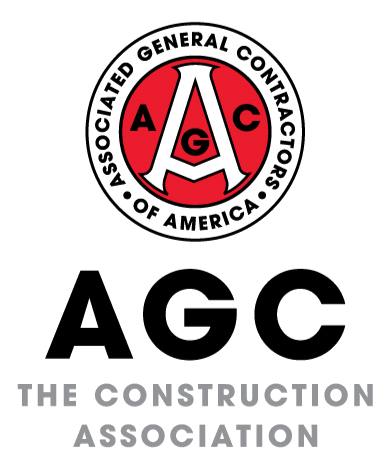Home | trenching & excavation | Professional Development
Professional Development
a well trained team builds a strong future
In addition to safety certifications, we offer professional development courses: Supervisory Training Program, CESCL, and Army Corps Quality Management.
Available Courses
Army Corps Quality Management Certification
Sponsored by Convergence Networks
Construction Quality Management for Contractors
This one and half day virtual training course hosted by the US Army Corps of Engineers covers the QC/QA system successfully used by the Corps of Engineers and NAVFAC. Concepts are increasingly being adopted by state agencies, public authorities, and other local public sector owners. It details planning concepts, which are prevention-oriented to reduce tear-out, improve quality, and improve schedule.
ABOUT THE COURSE
CQM-C course was developed by the US Army Corps of Engineers (USACE), Naval Facilities Engineering Command (NAVFAC), Associated Builders and Contractors (ABC), and Associated General Contractors (AGC). Upon satisfactory completion, a five-year certificate will be issued by the US Army Corps of Engineers. The CQM-C certificate earned from the class is approved for both Army and Navy projects.
WHO SHOULD ATTEND
CQM-C is a construction continuing education course useful for owners, A/Es, inspectors, construction managers, facility engineers, particularly those doing public sector construction. Successful completion of the CQM-C course by QC managers and their alternates is required by both USACE and NAVFAC construction contract specifications. NAVFAC design-build specifications require both construction QC managers and design QC managers to have successfully completed the course.
2025 Schedule
Please select a date below for easy online registration.
- April 8-9, 2025
Class Information
- Cost: $350 members, $400 non-members
- Virtual Online Course: Day One: 8 am–5 pm; Day Two: 8 am–12 pm
- Once registered, we will notify AGC of California and you will receive log in information, as well as orientation.
Certified Erosion and Sediment Control Lead (CESCL)
This is an on demand virtual course which focuses on erosion and sediment control for the construction industry. Once registered, participants have 10 days to complete the online training and then must complete a virtual field trip. Virtual field trips take place on Mondays. Each attendee will be registered with the Department of Ecology and be issued a numbered certificate and the certification card required for on-site Certified Erosion Control Supervisors. Certification is valid for three years.
Subjects covered in the CESCL course include:
- Project scheduling, and Stormwater Pollution Prevention Plan (SWPPP) planning and development
- Ecology approved source control BMPs
- Infiltration and dispersal methods
- Spill prevention planning
- Stormwater discharge monitoring and reporting
- Administrative record keeping
- Practical application erosion inspection review
- Permit compliance, contract considerations
- Legal ramifications of noncompliance: personal and corporate liability
Cost: $350 (members), $400 (non-members)
Re-Certification
Class Information:
This is an on demand virtual course which focuses on erosion and sediment control for the construction industry. Once registered, participants have 10 days to complete the online training. You must have your current CESCL certification number and expiration date. Upon completion, your new certification will be updated with the Department of Ecology. Certification is valid for three years.
Subjects covered in the CESCL course include:
- Project scheduling, and Stormwater Pollution Prevention Plan (SWPPP) planning and development
- Ecology approved source control BMPs
- Infiltration and dispersal methods
- Spill prevention planning
- Stormwater discharge monitoring and reporting
- Administrative record keeping
- Practical application erosion inspection review
- Permit compliance, contract considerations
- Legal ramifications of noncompliance: personal and corporate liability
Cost: $200 (members), $250 (non-members)
Construction Spanish
Construction Spanish is designed for language learners who wish to learn the basics across the build cycle, from foundation to framing to final clean. Brought to you in partnership with Bradley Hartmann & Company, this course is six weeks long, conducted Monday through Friday, and requires an average of fifteen minutes per day. Each weekday, an email arrives in your inbox with a link to that day’s brief video (videos range from four to six minutes). You watch the video and then complete the corresponding exercises in the book. To accommodate multiple learning styles, additional learning tools are included, like drive-time audio to listen to on your commute, a flash card app, and twelve audio recordings and transcripts based on common job site conversations.
Upcoming Classes
- January 27, 2025 (registration closes Jan 6)
- February 24 (registration closes Feb 3)
Supervisory Training Program
AGC of America’s Supervisory Training Program (STP) is a comprehensive six-course program focusing on the knowledge and skills that every supervisor must have to be an effective manager of people, time, equipment and materials. STP is a nationally-recognized training standard that has been the professional development resource of choice for more than 130,000 construction supervisors and managers.
Online Courses
This online version of the Supervisory Training Program (STP) is the same construction-specific training curriculum developed, updated, and field-tested by contractors as the face-to-face course. The comprehensive six-course certificate program is administered by San Diego State University through Construction Classes Online and AGC, and will benefit anyone on a construction jobsite who is in, or aspires to, a supervisory role. Each term three or four courses are offered, and students can register for one, two, or all those offered. Courses must be completed by the last day of the term. We recommend that you start with one course and become familiar with your own pace on the curriculum, then add more each term as your schedule allows. The STP curriculum creates an unmatched learning experience for participants. Every STP course is activity-based, with discussions, case histories, problems, and exercises. Participants in STP courses draw upon their field experience and learn by interaction with others from all areas of the construction industry.
Cost: members $400 non-members $600 (additional cost $150 for print textbook; $50 for electronic version)
Unit One – Leadership and Motivation (SDSU 201)
This course will describe the value of effective supervision of workers and improve the construction supervisor’s ability to lead and motivate others. It will help you recognize your style of leadership and how to utilize other styles when appropriate.
- The dollars and sense of people in construction
- The role of the construction supervisor
- Helping people perform better
- Analyzing worker needs to affect motivation; leading others
- Providing positive feedback to improve job performance, attitudes and abilities
- Training and orienting crew members
- Teams and team building
- Leadership skills in action
2025 SPRING TERM
APRIL 7 – START DATE
Unit Two – Oral and Written Communication (SDSU 202)
This course presents a body of knowledge and skills that today’s construction supervisors need in order to be effective communicators on their job site. You will acquire the skills and understanding of positive, direct communication with an emphasis on construction supervision.
- Effective communication
- Learning to listen
- Carrying on conversations
- Persuasion, negotiation, and confrontation
- Communicating with all levels of an organization
- Putting it in writing
- Meetings that work
- Electronic communication
- Improving communication
Unit 3 – Planning and Scheduling (SDSU 205)
Construction supervisors understand ways in which planning and scheduling saves time and money, while increasing quality in the construction process.
- Preparing the project plan
- Communicating the plan
- Preparing bar chart and critical path schedules
- Computer use in scheduling
- Using the schedule on the jobsite
- Updating the construction schedule
- The schedule as documentation
- Using planning and scheduling
Unit 4 – Contract Law and Documents (SDSU 204)
This course covers contract documents and construction law to help supervisors recognize the roles and responsibilities of all contracted parties, to develop an understanding of how contract documents can be helpful to solve problems and resolve conflicts, and to develop positive relationships between all parties in the construction process.
- Introduction to contract documents and construction law
- Creating a positive environment through partnering
- Contractual relationships
- Contract forms and documents
- Managing general conditions
- Good documentation practices
- Changes
- Differing site conditions
- Time impacts
- Negotiation of resolutions
Unit 5 – Cost Productivity and Cost Management (SDSU 206)
2025 SPRING TERM
APRIL 7 – START DATE
This course covers understanding how project estimates are compiled, how to compare actual project costs with those estimated and how to control costs to meet the estimate. This course also details how productivity is measured, how the supervisor plays a major role in increasing jobsite productivity and how a small increase in productivity can have a significant impact on the time and cost of a project.
- Construction estimates
- Who controls project costs
- Reporting and analyzing actual costs
- Planning for cost control
- Cost control strategies
- Labor cost variances
- Working with project partners
- Managing risk and loss potentials
- Cost control strategies
- Post-project evaluations
- Benchmarking construction productivity
- Improving productivity through pre-planning
- New skills for effective supervision
- Personnel management
- Equipment management for productivity improvement
- Jobsite productivity, planning and scheduling
- Quantifying lost labor productivity
- Record keeping, control, changes, and defect analysis
Unit 6 – Risk Management and Problem Solving (SDSU 203)
2025 SPRING TERM
APRIL 7 – START DATE
This course will cover the roles and responsibilities of a construction supervisor in accident prevention and loss control. Learn how to avoid barriers to creative problem-solving and how to create a problem-solving atmosphere at the jobsite.
- Safety leadership, communication and expectations
- Planning for site safety
- Site security and protection
- Multi-employer jobsite safety
- Construction risk management
- Safety and human resources
- Regulatory procedures, record keeping and document

100 Series: Estimating, Blueprints, Processes, Equipment, and Civil Sitework Courses
INTRODUCTION TO CONSTRUCTION – 100
This self-paced seminar is to understand the major roles, players, and processes in the construction industry. Become familiar with the types of construction and the process of a construction project.
Cost: Members $500, Non-members $690
For additional information about the contents of this course click here.
ESTIMATING & BLUEPRINT READING
Introduction to Construction Estimating – 101
A self-paced course. Develop foundational knowledge of the procedures, materials, equipment, and practices that are needed in estimating for any trade or type of construction. This estimating course provides an excellent introduction to the trade-specific estimating that we cover in Estimating and Bidding 1 and 2. The information from this course can be used in estimating any trade or type of construction.
Cost: Members $500, Non-members $690
For additional information on this course, click here.
Essential Construction Math – 102
A self-paced introductory course that develops mathematical skills through practice and application to the construction trade. Calculation of board feet, area, volume of shapes and concrete footings, slabs, and conversions are studied. While this class is not a prerequisite for any other classes, it does provide a foundation for them.
Cost: Members $500, Non-members $690
For additional information on this course, click here.
Construction Blueprint Reading – 103
Read architectural, structural, civil, mechanical and electrical blueprints. Practice looking up information and solving common construction problems by reading the blueprints.
Cost: Members $500, Non-members $690
For additional information on this course, click here.
Estimating and Bidding 1 – 105
The first of two hands-on detailed estimating courses in which students learn how to estimate general conditions, site work, excavation, concrete and masonry. Be sure to look over the prerequisites by clicking on the additional information link below.
Cost: Members $500, Non-members $690
For additional information on this course, click here.
ESTIMATING AND BIDDING 2 – 106
The second course features hands-on estimating and quantity take off activities associated with metals, wood, doors and windows, finishes, electrical, and mechanical estimating. You may take Estimating and Bidding 1 and 2 in any order.
Cost: Members $500, Non-members $690
For additional information about the content of this course click here.
MATERIALS & EQUIPMENT
CONSTRUCTION MATERIALS and PROCESSES – 107
Develop foundational knowledge of construction materials and processes that utilize concrete, brick and CMU, metals, wood products, roofing, and more. Understand and report back on how materials and processes function in green construction. An overall construction system will be covered each week. Expand your studies to include materials and processes which are normally encountered by the student in his/her work place.
Cost: Members $500, Non-members $690
For additional information about on this course, click here.
CONSTRUCTION EQUIPMENT and METHODS – 108
The course will introduce students to civil construction plans, determining earthwork quantities, equipment economics and utilization, equipment production rates, fundamentals of earthmoving and excavating, loading and hauling equipment.
Cost: Members $500, Non-members $690
For additional information on this course, click here.
CIVIL CONSTRUCTION
PRACTICAL APPLICATIONS of CIVIL SITE WORK – 109
This course focuses on understanding civil construction techniques. This includes site preparation and grading, excavation, backfill, compaction, trenching, paving, and dewatering.
Cost: Members $500, Non-members $690
For additional information on this course, click here.
Civil Blueprint Reading and Material – 110
In 110 students will gain an overall and elementary understanding of civil construction blueprints and materials in this blueprint reading class. This includes understanding and interpreting civil construction materials such as aggregates, concrete, asphalt, pipe, and geosynthestics.
Cost: Members $500, Non-Members $690
For additional information on this course, click here.
Estimating Civil and Sitework Construction – 114
This course introduces students to estimating civil engineering, heavy construction projects, and site work construction projects. This course will cover reading and understanding civil construction plans, determining crew make-up, and fundamentals of estimating various civil and site work components.
Cost: Members $500, Non-members $690
For additional information on the course, click here.
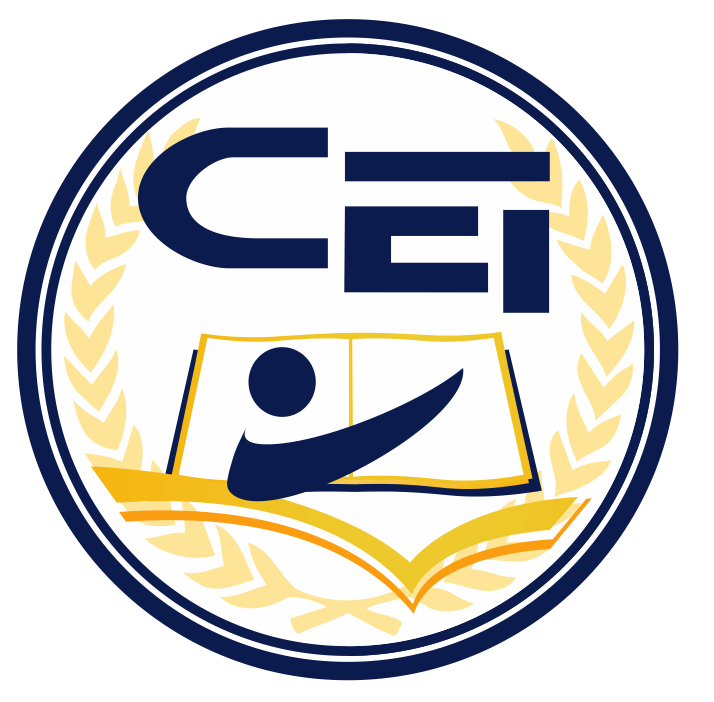
Building Information Modeling Education Program
This course is offered through AGC Edge, AGC of America’s live virtual training program.
Cost: $1,595 for members, $2,000 for non-members
What is the BIM EP?
AGC’s Building Information Modeling Education Program (BIM EP) is designed to educate construction professionals at all experience levels in BIM concepts and processes. The program consists of four courses, intended to give participants a broad understanding of the new processes required in BIM.
These highly interactive courses combine the latest information on BIM processes and technologies, step-by-step procedures for integrating BIM into the project delivery process, real-life case studies of successful BIM implementation and the practical issues all parties need to understand when using BIM on a construction project.
CM-BIM Seal
The highly interactive program provides 32 hours of instruction and training to get construction industry professionals at all levels ready to take advantage of the benefits of BIM.
After participants complete all four courses in the program, they become eligible to sit for an exam to earn the Certificate of Management – Building Information Modeling (CM-BIM). This exam fee is not included in the course fee.
Course Overview
BIM Learning Objectives
Path to CM-BIM
Upcoming Classes
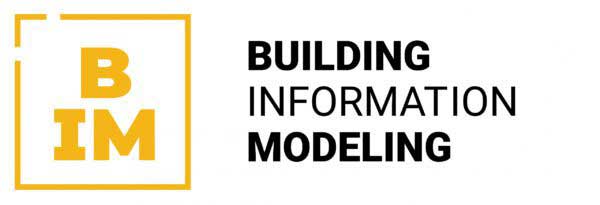
Construction Project Manager Course
Earn Your Professional Credentials
AGC of America’s widely recognized Construction Project Manager Course offers participants up to 35 qualified hours of professional development with the opportunity to receive the following continuing education credits:
3.5 IACET CEUs | The Associated General Contractors of America (AGC) is accredited by the International Accreditors for Continuing Education and Training (IACET) and offers IACET CEUs for its learning events that comply with the ANSI/IACET Continuing Education and Training Standard. IACET is recognized internationally as a standard development organization and accrediting body that promotes quality of continuing education and training.
35 AIA/CES LUs | The Associated General Contractors of America (AGC) is a Registered Provider with The American Institute of Architects Continuing Education Systems. Credit earned on completion of this program will be reported to CES Records for AIA members. Certificates of completion for non-AIA members are available on request.
This course also qualifies for continuing professional development (CPD) units from the American Institute of Constructors (AIC).
In order to qualify for CEUs, participants must:
- Attend the relevant course for at least 95% of instruction time.
- Complete all instructor evaluations as well as the overall course evaluation.
- Complete the overall assessment via the AGC Learning Center with a score of 75% or greater.
Please verify applicability with your professional board before attending. For more information on AGC credentialing opportunities, contact education@agc.org.
Visit the AGCA website for more information
Learning Objectives
Upon successful completion of this course, the learner will be able to:
- Identify the importance of pre-planning and its correlation with a company’s bottom line.
- Discuss the impact of low job site productivity on the project contractor, craftsperson, project owner and designer.
- Discuss information required to evaluate and select subcontractor and vendor services and material and equipment purchases.
- Identify legal actions, or lack thereof, that can have far-reaching legal consequences for the project manager, their company and many others.
Learning Modules
- Problem Solving & Decision Making
- Communications
- Project Planning
- Safety Management
- Subcontractor & Vendor Management
- Cost Control
- Project Recordkeeping
- Construction Productivity
- Time Management
- Claims Management
- Critical Path Method (CPM) Scheduling
- Legal Issues & Contract Clauses
- Innovation
Visit the AGCA website for more information.
Tentative Schedule
(Subject to Change)
- Day 1: Team Building & Networking
- Day 2: Problem Solving, Decision Making, Safety Management & Innovations
- Day 3: Communications & Project Planning
- Day 4: Subcontractor + Vendor Management, Cost Control, Project Recordkeeping & Construction Productivity
- Day 5: CPM Scheduling, Legal Issues + Contract Clauses
- Day 6: Time Management & Claims Management
Visit the AGCA website for more information.
Upcoming Classes
- Atlanta | March 23–28 | Register
Questions? Contact AGC of America’s Sharon Williams or Jo-Anne Torres for additional information.
Construction Supervision Fundamentals
This course is offered through AGC Edge, AGC of America’s live virtual training program.
Cost: $875 for members, $1,115 for non-members
What is the CSF?
AGCA’s Construction Supervision Fundamentals (CSF) focuses on the knowledge, skills and attitudes that are basic requirements for construction supervision. It is especially appropriate for those who are novice supervisors or newly promoted foremen, or for anyone who seeks career advancement in leading and directing construction activities. The construction supervisor’s responsibility to coordinate and manage construction activities requires creative and flexible thinking that can be applied to the dynamic issues associated with construction projects.
About the CSF
This course is the first step on the path to developing construction supervisors. This interactive course allows the building trades and craft workers to experience construction supervision techniques firsthand and create a professional development plan to achieve personal career goals.
Course Overview
CSF Learning Objectives
Upcoming Courses
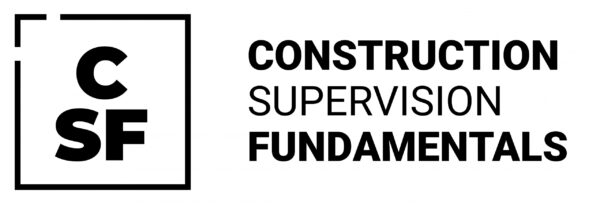
Continuing Edge Workshops
These courses are offered through AGC Edge, AGC of America’s live virtual training program.
It’s never been easier to equip your team with the insights needed to boost jobsite safety and productivity.
AGC of America’s Continuing Edge Workshops give your team a crash course in the most pressing topics facing our industry. Each program immerses attendees in a 4–12-hour learning experience designed to empower them to leave as a more confident and well-informed leader.
These concise, targeted training sessions are delivered through dynamic Zoom classrooms. Participants must have video and audio functions active to maximize interaction with both facilitators and peers.
Continuing Edge Workshops
Blueprint Reading – Basic
- June 4–12 | 12–3 pm | Register
- September 10–18 | 12–3 pm | Register
- November 5–13 | 12–3 pm | Register
Registration fee: $650
Join this four-part series, designed to provide you with the foundational knowledge and ‘hands on’ classroom experience, to help get you started in understanding construction design documents.
This blueprint reading series is developed to instruct each student in the basic understanding of construction blueprints and specifications. Every construction professional, whether working in the field or in the office, must know how to read plans. Although not overly complicated, beginning to read blueprints does require a basic understanding, practice and general knowledge of industry standards used to communicate project design.
What you can expect to gain from this course:
- An introductory and foundational knowledge of blueprint reading as it relates to building construction projects.
- Hands on practice and understanding of reading blueprints and specifications manuals.
- Be able to locate both general and specific trade information using blueprints and Specifications.
- Be able to answer basic construction questions related to design intent, project layout and the installation of materials at the jobsite.
- Be able to locate, identify and understand project specific aspects within the design documents.
Intro to MS Project for Construction
- March 7, 2025 | 8 am–12 pm | Register
Registration fee: $550
Never developed a schedule, but work with them all the time? This class will review the definitions and development for schedules through an introduction to MS Project. By the end of this class, you will understand scheduling terminology and be able to develop, print and update a simple schedule.
The schedule is a key tool used to communicate to all stakeholders on the project and create both big and small snapshots of actual and planned progress. Learning MS Project will assist construction leaders in being more efficient and more effective.
MS Project is becoming more popular as a scheduling tool due to it’s availability for all levels of construction companies.
Intermediate MS Project for Construction
- March 14, 2025 | 7 am–1 pm | Register
Registration fee: $550
As a project manager, your job is to minimize risk on a project by participating in the planning, implementation and monitoring of the project schedule, budget and quality control. The schedule is a key tool used to communicate to all stakeholders on the project and create both big and small snapshots of actual and planned progress. Join this interactive class to review, discuss and demonstrate MS project and best practices of construction project scheduling.
Many companies are turning to MS project and many have been self taught to use the software. This class goes into an intermediate level of using MS Project beyond the basics, reviewing the tracking, updating, resource planning and cost functions of the program. The course uses a sample project and interactive exercises to demonstrate the functions of MS Project.
Focused Topics in Construction
- April 21–24 | Arlington, Virginia | Register
Registration fee: $1,495 for members, $1,795 for non-members
The AGC Focused Topics in Construction (FTC) course provides attendees four days of intensive training on managing and mitigating risks associated with high-hazard activities. Participants will explore key safety protocols, regulatory standards, and best practices for safeguarding workers in high-risk environments. Through practical examples, case studies, and interactive exercises, the course emphasizes hazard identification, risk assessment, and the implementation of control measures. By the end of the course, participants will be equipped to create safer work environments, reduce incidents, and meet/exceed compliance obligations.
Health Hazards in Construction
- September 22–25 | Arlington, Virginia | Register
Registration fee: $1,495 for members, $1,795 for non-members
The AGC Health Hazards in Construction (HHC) course provides attendees four days of comprehensive training to enhance their knowledge and skills in industrial hygiene (IH) practices as they apply to the construction industry. Participants will learn to identify, evaluate, and control workplace hazards that may affect workers’ health, such as exposure to chemicals, noise, dust, heat stress, and more. Participants will also be able to better manage and coordinate industrial hygiene services. The course will focus on integrating industrial hygiene principles with occupational safety to create safer and healthier construction environments.

AGC of America Emerging Contractors Education Series
For small contractors just starting out, the school of hard knocks is a tough instructor. Let AGC members help you overcome the challenges all small emerging businesses face with this 12-part video series focused on helping your business thrive and grow. Hear directly from contractors that have already paved the road to success.
This series is designed for emerging contractors – three years or less in business – and will address common industry challenges and best practices. But anyone who aims to start their own construction business or works in construction can learn from AGC’s industry experts in this free 12-class series.
Produced by AGC of America, we pleased to offer this course free to construction companies, their employees, and young construction industry professionals (members and non-members.) in Oregon.
Modules focus on these topics:
- Module 1: Company Organization
- Module 2: Effective Leadership
- Module 3: Insurance and Bonding
- Module 4: Business Development
- Module 5: Contracts
- Module 6: Workplace Legal Compliance
- Module 7: Financials and Cash Flow
- Module 8: Bidding and Estimating
- Module 9: Executive Management
- Module 10: Scheduling
- Module 11: Warehouse, Tools & Equipment
- Module 12: Safety (four parts)
Click here to access the Emerging Contractors Education Series.
Lean Construction Education Program
This course is offered through AGC Edge, AGC of America’s live virtual training program.
Cost: $2,645 for members, $3,425 for non-members
What is the Lean Construction Education Program?
Everyone related to the construction process has an incentive to get the project done faster and at a lower cost – from the project owners who want to see results for their investment to the contractors and designers who want to do their job well and move on to the next project. Lean Construction is based on the holistic pursuit of continuous improvements aimed at minimizing costs and maximizing value on a construction project: planning, design, construction, activation, operations, maintenance, salvaging, and recycling.
To help contractors develop the knowledge needed to build Lean, the Associated General Contractors of America developed the Lean Construction Education Program (LCEP). Construction professionals at all experience levels will learn the building blocks necessary to transform their projects and companies into a Lean Operating System.
The highly interactive program provides 36-hours of instruction and training to provide construction industry professionals at all levels with the knowledge and skills to take advantage of the benefits of Lean Construction.
CM-Lean Certificate
Students participating in AGC’s five-unit Lean Construction Education program will be eligible to take an exam to earn their CM-Lean.
The AGC Certificate of Management-Lean Construction (CM-Lean) is an assessment-based certificate credential that denotes knowledge and understanding of concepts related to lean adoption, practice, and process transformation outlined in AGC’s Lean Construction Education Program. Successful candidates will carry the CM-Lean designation.
Course Overview
LCEP Learning Objectives
Path to CM-Lean
Business Case for Lean
Upcoming Classes
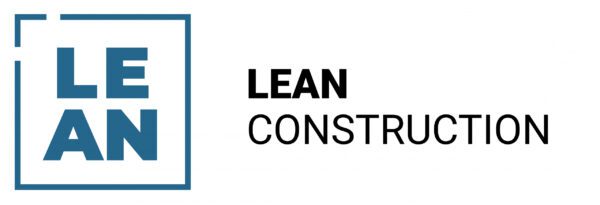
Project Manager Development Program
This course is offered through AGC Edge, AGC of America’s live virtual training program.
Cost: $1,865 for members, $2,375 for non-members
What is the PMDP?
AGCA’s Project Manager Development Program (PMDP) is construction-specific training curriculum developed, updated, and field-tested by and for contractors. The five-unit, ~40 hour program covers the essentials of project management for emerging project managers and provides a solid foundation for long-term career development, taking participants through the management of the entire lifecycle of a construction project.
The curriculum, along with the activities and shared experiences of course participants, provides the necessary skills and knowledge to increase the participant’s ability to work successfully with others to ensure project success.
Course Overview
PMDP Learning Objectives
Upcoming Courses
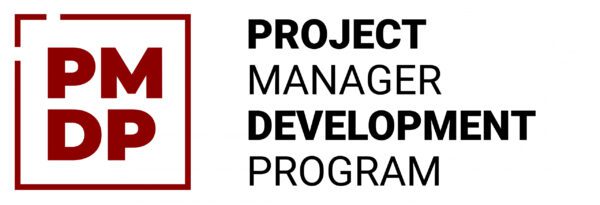
Safety Management Training Course
This course is offered through AGC of America.
What is the SMTC?
The AGC of America Safety Management Training Course (SMTC) provides attendees three days of training on the basic skills needed to manage a company safety program in the construction industry.
The SMTC program builds on Focus Four training and prepares attendees to manage key safety issues on the job site and provides techniques for delivering basic safety training to field personnel.
Participants will receive intensive instruction and training that will allow them to return to their firms with readily applicable new skills to positively impact their company’s safety and health program.
Topics covered include:
- OSHA Inspections
- Subcontractors & Multi–Employer Relations
- Job Safety Analysis
- Equipment Management
- Steel Erection and Concrete Construction
- Electrical Safety Management
- Accident Investigation
- Excavation Management
- Concrete Safety
- Fall Protection Management
- Bi–Lingual Issues
- OSHA Crane & Derrick Standard
Continuing Education
2.3 IACET CEUs
The Associated General Contractors of America (AGC) is accredited by the International Accreditors for Continuing Education and Training (IACET) and offers IACET CEUs for its learning events that comply with the ANSI/IACET Continuing Education and Training Standard. IACET is recognized internationally as a standard development organization and accrediting body that promotes quality of continuing education and training.
22.75 AIA Learning Units (Health, Safety and Welfare)
The Associated General Contractors of America is a registered provider of AIA-approved continuing education under Provider Number G523. All registered AIA CES Providers must comply with the AIA Standards for Continuing Education Programs.
Cost (includes breakfast, lunch, and training materials)
- $1,195 member / $1,495 non-member
Upcoming In-Person Courses
In-Seat Classes
- Upcoming dates TBD
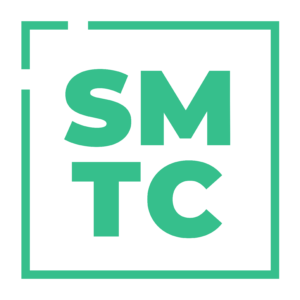
Virtual SMTC
This course is offered through AGC Edge, AGC of America’s live virtual training program.
Technology Requirements
Courses are delivered via the Zoom platform; a webcam and mic are required for participation. Headsets or earbuds are strongly recommended. Registration cost includes the eTextbook.
Questions? Email AGC of America at education@agc.org
Upcoming Virtual Courses
- May 15–30 | 6 am–1 pm | Register

Safety Management Training Course
This course is offered through AGC of America.
What is the ASMTC?
This unique four–day course provides construction safety and health professionals with the next–level knowledge required to successfully manage a company–wide safety program.
Moving beyond the basics of Focus Four training, AGC of America’s Advanced Safety Management Training Course will give participants a more holistic view of safety’s role in project and company success, as well as advanced tactics and best practices for managing all aspects of a corporate safety program.
Participants will also focus on the importance of “selling” safety throughout the organization and methods to generate buy–in from different audiences.
Course Modules
- Managing a Field Safety Program
- Training Supervisors
- Record keeping Requirements and Best Practices
- Legal Aspects of Construction Safety
- Insurance and Risk Management
- How to Handle Multi–Employer Worksites
- Crisis Management Tactics
Continuing Education
After completing the course, students receive a Certificate of Completion, a digital badge to share and up to 2.2 IACET CEUs.
Cost
- $1,450 member / $1,825 non-member
Upcoming Virtual Courses
- October 16–24 | 6 am–1 pm | Register
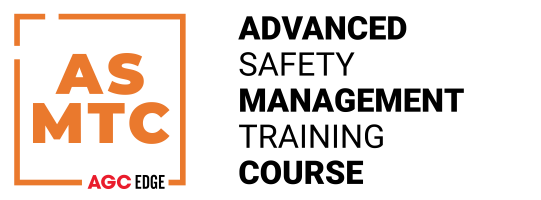
Mental Health & Suicide Prevention
This course is offered through AGC of America.
The construction industry has one of the highest suicide rates among all professions. AGCA collaborated with industry leaders and mental health professionals to develop an educational program to equip supervisors with the knowledge and skills to identify and support struggling workers, care for themselves, and become a catalyst for change within their organizations. This online, self-paced, five-module course is free for AGC members and $49 per person for non-members.
Module 1: Introduction to Mental Health & Suicide Prevention in Construction
This module will shed light on the current state of mental health, substance use, and suicide in the industry, why workers are at risk, and how supervisors are uniquely positioned to create a culture of awareness and support.
Module 2: Building a Psychologically Safe Work Culture
This module will explore how fostering an open, supportive work culture can improve mental well-being, teamwork, and overall job performance. Learn how to create an environment where workers feel safe to speak up, seek help, and support one another without fear of judgment.
Module 3: Identifying & Approaching Employees in Need
Recognizing when someone is struggling can be the first step in saving a life. This module will equip you with the skills to identify signs of mental distress and confidently approach employees who may need support. Learn how to start the conversation, offer help, and connect them with resources—because looking out for each other is just as important as the work we do.
Module 4: Leadership & Employee Engagement
Empathetic and compassionate leadership is essential to a mentally healthy and resilient workforce. This module will explore how leaders can foster a culture of openness, support, and promote proactive mental health strategies to reduce the risk of suicide. Learn practical ways to lead by example, encourage honest conversations, and create a workplace where every worker feels valued and supported.
Module 5: The Role of Human Resources in Mental Health & Suicide Prevention
Human Resources (HR) plays a critical role in shaping a work culture that prioritizes mental health and suicide prevention. This module will explore how HR can review/implement policies, provide resources, and foster an environment where employees feel safe seeking support. Learn practical strategies to break the stigma, promote well-being, and create a stronger, healthier workforce.
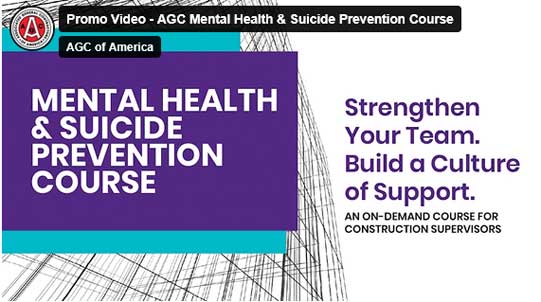
Questions
Joan Stitt Hindman
Become a Member
Experience the many benefits of membership with AGC…contact us today!

